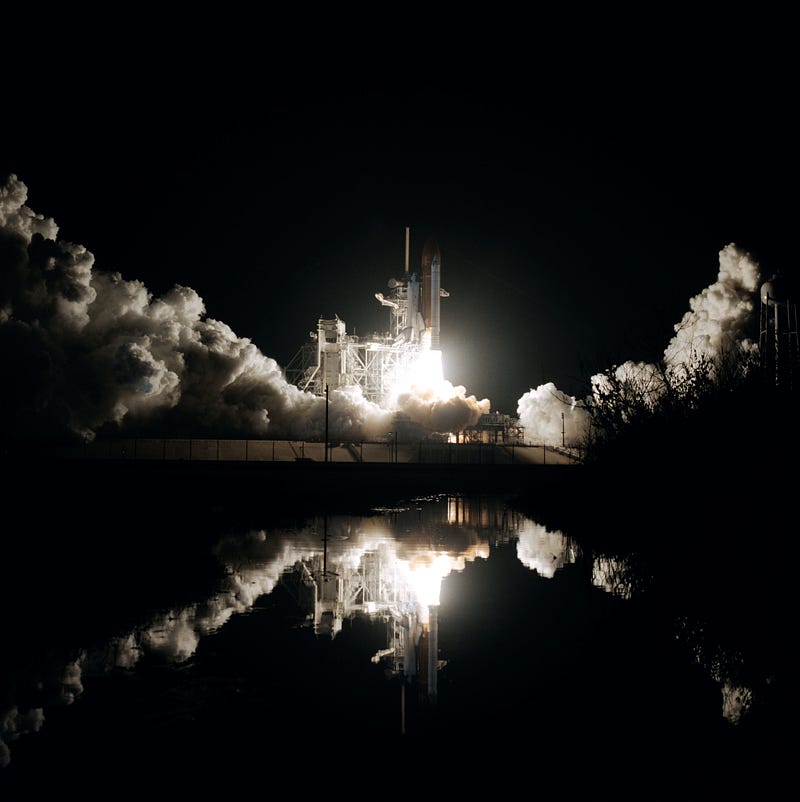The Future of Science and Technology: Insights for 2022
Written on
Chapter 1: The Ongoing Impact of COVID-19
As we navigate through 2022, this year stands as a pivotal moment in the evolution of the pandemic. We are poised to see whether we can manage the variants effectively or whether we will continue to face significant challenges. The coming months will not only test our resilience against COVID-19 but also present hurdles across various scientific fields.
Making forecasts about what this year may hold involves a degree of creativity, yet certain key dates on the calendar hint at the direction science and technology may take.
The COVID-19 pandemic will remain a central focus, prompting us to evaluate how the Omicron variant influences our global landscape. We will observe whether vaccines can mitigate its impact or if new variants emerge in the near future. Given the unprecedented spread of the virus towards the end of 2021, the initial months of 2022 are expected to be the most challenging. We will soon discover if this sixth wave proves to be a transient spike or if it complicates the remainder of the winter season.
It is anticipated that 2022 will witness the rollout of third and fourth vaccine doses in wealthier nations, alongside the broader use of new antiviral treatments designed to curb severe disease progression. On the horizon, there is hope for an intranasal vaccine, akin to the one being developed by Luis Enjuanes' team at CSIC, with expectations for results by the year's end.
Another pressing question remains: will the global community take the urgent need for vaccine distribution seriously, or will we remain vulnerable to the emergence of new viral variants in the years to come?
Section 1.1: The Rise of Non-Physical Innovations
One of the significant trends that will emerge, propelled by the pandemic, is what South Korean philosopher Byung-Chul Han describes as "the era of non-things." The rise of cryptocurrencies, NFTs, and Mark Zuckerberg's ambitious push into the Metaverse will reveal a reality where information, rather than material possessions, shapes our existence.
The transition to this new paradigm will be marked by a blend of innovation and the recycling of outdated concepts disguised as groundbreaking ideas. As for Bitcoin, we will witness how long the current bubble lasts, especially for those who are reaping substantial profits.

Section 1.2: The Consequences of Climate Change
As society immerses itself in this hyper-stimulated virtual landscape, the real world will persistently remind us of its presence through an increase in extreme weather events driven by climate change. Floods, heatwaves, and severe storms are inevitable; their locations may be unpredictable, but their occurrence is certain.
In 2022, world leaders will convene for another climate summit in Egypt (COP27), where the primary goal will be to raise awareness about the critical need for biodiversity conservation and the overarching concept of "One Health." This idea emphasizes that the well-being of all species on the planet is essential for our own health and crucial in preventing future pandemics.
Chapter 2: Advancements in Science
Video Description: This video from WHO's Science in 5 discusses living with COVID-19, highlighting strategies and insights for managing health in the ongoing pandemic.
After a lengthy hiatus for upgrades, CERN's Large Hadron Collider (LHC) in Geneva will resume operations in the summer. This restart will allow the ATLAS and CMS experiments to significantly increase the number of particle collisions monitored, seeking clues regarding neutrinos and dark matter.
With energy prices soaring, one must wonder about the financial implications of this operational phase for the LHC.
Section 2.1: Space Exploration Milestones
This year is set to be monumental for space exploration, particularly with the anticipated launch of the James Webb Space Telescope. The focus will also be on our neighboring celestial bodies.
In September, the second phase of the Russian-European ExoMars mission, which was delayed in 2020 due to technical issues, will launch with the Rosalind Franklin rover. Its primary mission: to investigate whether life ever existed on Mars.
As numerous missions are planned, 2022 will see increased traffic around the Moon, potentially surpassing that of many roads in "emptied" Ireland. Additionally, China aims to complete its Tiangong space station and initiate a series of lunar missions, paving the way for future astronaut expeditions — the first since the Apollo program.
NASA will also launch the Artemis I orbiter, while the CAPSTONE agency will conduct preliminary tests for a future lunar space station. India and Japan are preparing to land their respective missions on the Moon (Chandrayaan-3 and SLIM), and South Korea will trial its own lunar orbiter.
Video Description: This video details the outpatient COVID response from VA Palo Alto, highlighting the critical care provided during the pandemic.
Section 2.2: Earth-Focused Research Initiatives
NASA has announced plans for four scientific missions in low Earth orbit in 2022 aimed at enhancing our understanding of the planet. These initiatives will provide crucial data on climate dynamics, including extreme weather events, surface waters, and atmospheric conditions.
The TROPICS mission will deploy six small satellites to deliver rapid and detailed measurements of tropical cyclones. EMIT will track the origin and composition of mineral dust affecting climate and human health, utilizing an imaging spectrometer aboard the International Space Station. NOAA's JPSS-2 will assist scientists in predicting extreme weather conditions, while SWOT will evaluate oceanic changes and monitor freshwater bodies.
This robust investment underscores the need to comprehend the intricate relationships that sustain life on our planet.